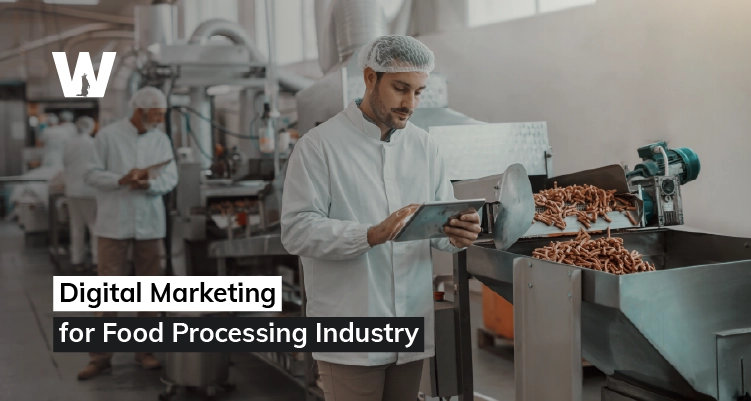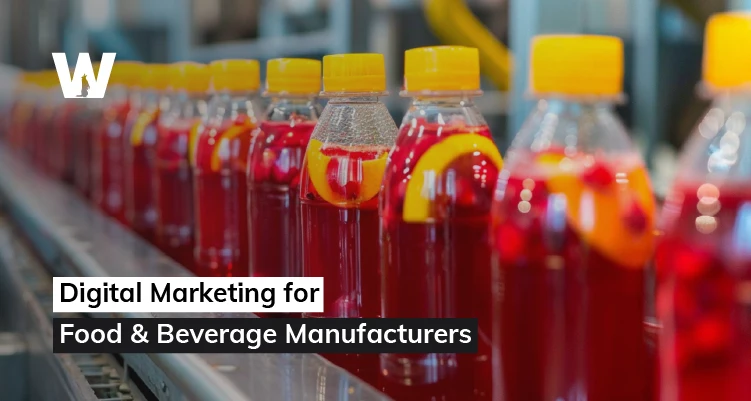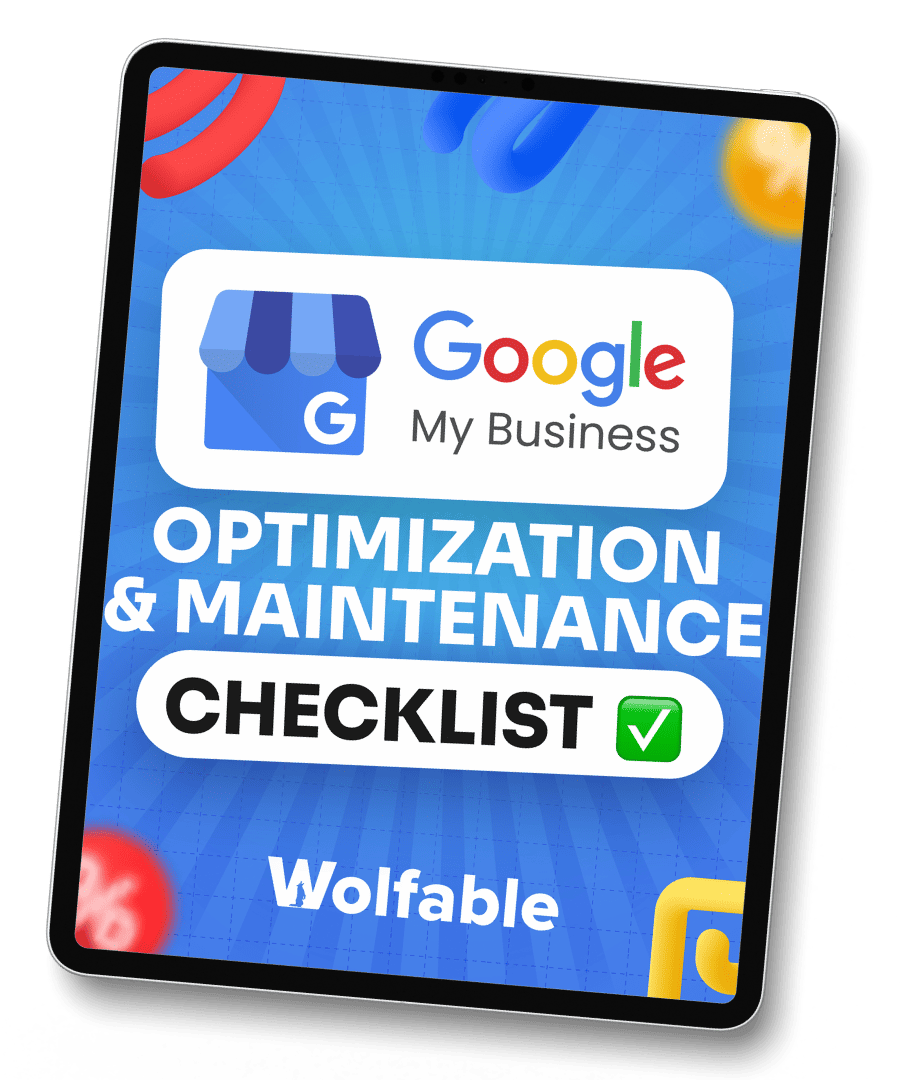Wraps up in 5 Minutes
Introduction
The food processing industry plays an important role in meeting the ever-growing demand for safe, nutritious, and convenient food products. From frozen meals to packaged snacks, this sector encompasses a wide range of activities, including preserving, packaging, and distributing food products for consumers worldwide. In recent years, the industry has witnessed a remarkable digital transformation, Opening the door to new opportunities and challenges.
Digital marketing has emerged as a game-changer for food processing businesses, enabling them to reach wider audiences, build brand awareness, and drive sales like never before. In an increasingly competitive marketplace, leveraging the power of digital channels has become crucial for companies seeking to stay ahead of the curve.
The digital landscape has revolutionized the way food processors interact with their customers. From social media platforms to search engines and e-commerce websites, businesses now have access to a vast array of tools and strategies to engage with their target audience. By embracing digital marketing, food processing companies can not only enhance their online visibility but also gain valuable insights into consumer preferences and behaviour, allowing them to customize their products and marketing efforts accordingly.
Moreover, the digital transformation in the food processing industry has opened new avenues for innovation, collaboration, and efficiency. By integrating advanced technologies such as artificial intelligence, data analytics, and automation, businesses can streamline their operations, optimize supply chains, and deliver superior customer experiences.
In this blog, we’ll explore effective digital marketing strategies customized to Food Processing Industry, including SEO, PPC, content marketing, and social media, to help you capture a larger share of this growing market.

What is Digital Marketing for the Food Processing Industry?
Digital marketing is the promotion of products or services using digital technologies and online channels. In the context of the food processing industry, it involves leveraging various digital platforms and strategies to market and sell food products effectively.
The food processing industry faces unique challenges, such as strict regulations, limited shelf-life concerns, and intense competition. Digital marketing offers solutions to address these challenges by providing a cost-effective way to reach and engage with customers, build brand awareness, and drive sales.
Why is Digital Marketing Important for the Food Processing Industry?
In today's digital age, having a strong online presence is crucial for businesses in the food processing industry. Digital marketing can help food processors increase visibility, engage with customers, and generate leads more effectively than ever before. Here's why it's so important:
1. Increased Visibility
Digital marketing helps food processing companies reach a larger audience by optimizing their online presence, making it easier for potential customers to find their products.
2. Customer Engagement
Through social media, businesses can engage with customers in real-time, answer questions, and build loyalty by creating a sense of community.
3. Lead Generation
With strategies like SEO, PPC, and content marketing, food processors can attract qualified leads and increase sales opportunities.
4. Enhanced Branding
Digital marketing helps food processors reinforce their brand identity consistently across online platforms, making their brand memorable.
5. Building Customer Trust
Active online presence and valuable content help businesses establish credibility, building trust and loyalty among customers.
6. Expanded Market Reach
Digital marketing removes geographical limits, enabling food processors to reach new markets and grow their customer base.
Thus, digital marketing is crucial for the food processing industry because it offers unparalleled opportunities for increased visibility, customer engagement, lead generation, enhanced branding, building customer trust, and expanding market reach in an increasingly competitive landscape.
Digital Marketing Strategies for the Food Processing Industry
In today's digital age, food processing companies must embrace various digital marketing strategies to stay competitive and reach their target audience effectively. From optimizing their online presence to leveraging social media platforms, there are numerous tactics that can be employed to drive growth and success. Let's explore the different types of digital marketing strategies that are particularly relevant for the food processing industry.
1. SEO (Search Engine Optimization)
Search Engine Optimization (SEO) is a crucial digital marketing strategy for food processing businesses to improve their online visibility and attract more potential customers. In today's digital age, consumers often turn to search engines like Google to find information about food products, recipes, and businesses in the industry.
Optimizing your website for search engines involves several techniques, including keyword research, on-page optimization, and link building. By identifying relevant keywords related to your food processing business, products, and services, you can optimize your website's content, meta tags, and structure to rank higher in search engine results pages (SERPs).
Ranking higher for relevant keywords in the food processing industry can provide numerous benefits:
- Increased Visibility: When your website appears at the top of search results, it becomes more visible to potential customers actively searching for products or services related to your business.
- Targeted Traffic: SEO helps attract visitors who are specifically interested in your offerings, resulting in more qualified leads and potential conversions.
- Cost-Effective Lead Generation: While SEO requires an initial investment of time and effort, it can generate a consistent stream of organic traffic and leads without the ongoing costs associated with paid advertising.
- Improved Brand Credibility: Ranking well for relevant keywords in the food processing industry can enhance your brand's credibility and establish your business as an authority in the field.
- Long-Term Benefits: SEO efforts have a compounding effect, with improvements made today continuing to yield benefits in the future, providing a strong return on investment.
By optimizing your website for search engines and ranking higher for relevant keywords, food processing businesses can increase their online visibility, attract more qualified traffic, generate leads, and ultimately drive sales and growth in the competitive food industry.
2. PPC (Pay-Per-Click Advertising)
Pay-per-click (PPC) advertising is a powerful digital marketing strategy for food processing companies to reach their target audience and generate qualified leads. By running targeted ads on popular platforms like Google Ads and Bing Ads, businesses can promote their products or services to consumers actively searching for related keywords.
Google Ads is the most widely used PPC platform, allowing food processors to display their ads on Google's search engine results pages (SERPs) and across the Google Display Network. With advanced targeting options, companies can ensure their ads are shown to users searching for specific food-related keywords, such as "organic food processors," "frozen food manufacturers," or "local food suppliers."
Bing Ads, while having a smaller market share than Google Ads, can be an effective complementary platform for food processing businesses. It offers similar targeting capabilities and the ability to reach users on Microsoft's Bing search engine and partner sites.
Effective PPC campaigns for the food processing industry involve carefully selecting relevant keywords, crafting compelling ad copy, and optimizing landing pages for conversions. Food processors can leverage ad extensions, such as call extensions, location extensions, and sitelink extensions, to provide additional information and improve click-through rates.
Moreover, PPC advertising allows for granular targeting based on factors like geographic location, device type, and user behavior, ensuring that ads are displayed to the most relevant audience. This precision targeting can be particularly valuable for food processing companies targeting specific regions or demographics.
By continuously monitoring and optimizing their PPC campaigns, food processors can maximize their return on investment (ROI) and effectively drive qualified leads and sales for their products or services.
3. Social Media Marketing
Social media platforms have become an indispensable part of digital marketing strategies for businesses in the food processing industry. With billions of active users worldwide, social media offers a powerful way to connect with potential customers, build brand awareness, and drive engagement.
The importance of social media for food businesses cannot be overstated. These platforms allow companies to showcase their products, share recipes, and promote their brand personality. By leveraging social media effectively, food processors can establish a strong online presence, cultivate customer loyalty, and ultimately drive sales.
Effective Strategies on Different Platforms
1. With over 2.9 billion active users, Facebook is an important platform for food businesses to establish their online presence. Companies can create business pages to share updates, promotions, and behind-the-scenes content. Additionally, Facebook Ads can be leveraged to run targeted campaigns and reach specific audiences based on demographics, interests, and behaviors.
2. Instagram's visual nature makes it an ideal platform for food businesses to showcase their products, share mouth-watering images, and engage with their audience. By using relevant hashtags, collaborating with food influencers, and running sponsored posts, food processors can increase brand awareness and drive customer engagement.
3. While often overlooked by consumer-facing businesses, LinkedIn can be a valuable platform for B2B food processing companies. It allows businesses to establish thought leadership, share industry insights, and connect with potential partners, suppliers, and customers within the professional community.
4. Twitter's real-time nature makes it an excellent platform for food businesses to share updates, engage in conversations, and respond to customer inquiries promptly. By leveraging relevant hashtags and participating in industry discussions, food processors can increase their brand visibility and establish themselves as industry experts.
By consistently creating compelling content, engaging with their audience, and leveraging platform-specific features, food businesses can effectively promote their products, build brand loyalty, and drive sales.
4. Content Marketing
Content marketing is a powerful strategy for food processing companies to establish themselves as industry authorities and build trust with their target audience. By creating and sharing valuable, relevant, and consistent content, businesses can attract and retain customers while positioning themselves as thought leaders in the food industry.
One of the primary benefits of content marketing for food processors is the ability to educate and inform consumers about their products, processes, and industry trends. Through informative blog posts, engaging videos, and insightful case studies, companies can showcase their expertise, address common concerns, and provide solutions to challenges faced by their customers.
Case studies and testimonials are particularly effective in the food processing industry, as they allow businesses to highlight their successes and demonstrate the real-world impact of their products or services. By sharing stories of how their solutions have helped other companies overcome obstacles or achieve specific goals, food processors can build credibility and establish themselves as trusted partners.
Overall, content marketing is an essential component of a comprehensive digital marketing strategy for the food processing industry. By consistently delivering valuable and engaging content, businesses can not only attract and retain customers but also establish themselves as respected authorities within their niche, ultimately driving growth and success in a highly competitive market.
5. Email Marketing
Email marketing is a powerful digital marketing tool for the food processing industry, allowing businesses to directly reach and engage with their target audience. By building a targeted email list and crafting compelling campaigns, food processors can nurture leads, promote new products, share industry insights, and foster long-lasting customer relationships.
Once a substantial email list is established, food processors can leverage email marketing to run targeted campaigns customized to their audience's interests and preferences. Segmenting the email list based on factors like customer behavior, purchase history, or dietary preferences allows for personalized messaging and content, increasing engagement and conversion rates.
Effective email campaigns for the food processing industry may include:
- Product Launches: Announce new product releases, share details, and generate excitement among subscribers.
- Promotional Offers: Share exclusive discounts, coupons, or limited time offers to drive sales and customer loyalty.
- Recipe Newsletters: Provide subscribers with delicious recipes featuring your products, fostering engagement and brand loyalty.
- Industry Updates: Keep customers informed about the latest trends, regulations, and developments in the food processing industry.
- Event Invitations: Promote upcoming events, trade shows, or food festivals where your products will be showcased.
By leveraging email marketing, food processing businesses can establish a direct line of communication with their audience, nurture relationships, and ultimately drive sales and customer retention.
6. Brand Reputation Management
In the highly competitive food processing industry, where consumer trust and brand reputation are paramount, effective brand reputation management is crucial. Online reviews and customer feedback can significantly impact a food processing company's credibility, sales, and overall success.
Managing online reviews and customer feedback is a critical aspect of brand reputation management for food processors. Positive reviews can attract new customers, while negative reviews can deter potential buyers and tarnish the brand's image. Food processing companies must actively monitor and respond to customer feedback across various platforms, such as Google Reviews, Yelp, TripAdvisor, and social media channels.
Responding promptly and professionally to both positive and negative reviews can demonstrate a company's commitment to customer satisfaction and transparency. Addressing negative feedback with empathy and a willingness to resolve issues can help mitigate potential damage to the brand's reputation. Conversely, ignoring or dismissing negative reviews can exacerbate the situation and further erode consumer trust.
Ultimately, brand reputation management is an ongoing process that requires consistent effort and a customer-centric approach. By actively managing online reviews and customer feedback, food processing companies can build trust, enhance their brand image, and foster long-lasting relationships with their customers.

Why Choose Wolfable for the Food Processing Industry
At Wolfable – the best manufacturing digital marketing agency, we understand the unique challenges and opportunities in the food processing industry. With our deep expertise in digital marketing for manufacturing sectors, we are well-equipped to propel your food processing business to new heights.
Our approach is centred around crafting customized strategies that drive measurable growth. We don't just implement generic marketing tactics; instead, we take the time to understand your brand's essence, target audience, and goals. This allows us to develop customized digital marketing plans that resonate with your customers and gives the best results.
Wolfable's data-driven optimization ensures that your marketing efforts are continuously refined and adjusted for maximum impact. Our team of experts leverages advanced analytics and insights to identify areas for improvement, optimize campaigns, and maximize your return on investment.
We have a proven track record of success in the food processing industry. Our case studies and client testimonials showcase how we have helped businesses like yours achieve remarkable growth through effective digital marketing strategies. From increasing online visibility and engagement to generating qualified leads and driving conversions, we have the expertise to tackle your unique challenges head-on.
Conclusion
With Wolfable as your digital marketing partner, you can be confident that your brand is in expert hands. Our comprehensive understanding of the industry, keen observational skills, and steadfast commitment to achieving your goals make us the perfect choice for transforming your food processing business into a dynamic force.
Ready to elevate your business? Contact us today at contact@wolfable.com or call +91 85113 93399, and let’s discuss how we can drive your success together!









